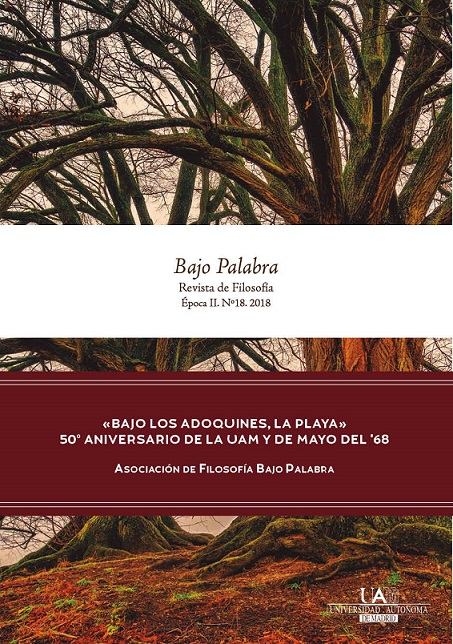The Concept of Harmony in Gadamerian Hermeneutical Reception of Kantian Philosophy
Abstract
Abstract
The paper is treating the theme of harmonical relationship between metaphisics and science in Kantian philosophy from the point of view of the philosophical hermeneutics of Gadamer. The philosophical work of Kant had such an influence on Gadamer that without exagerating we can talk about the Kantian turning point in Gadamerian hermeneutics. Grondin, a former student of Gadamer, is talking about Kantian turning point in the field of esthetics, but in reality Kantian turning point means much more than a mere change in the reception of the concept of judgement. It is a discovery of harmonical relationship between the beauty and the moral, between the reason and the sensitivity, between the modern sciences and the metaphysical tradion in the Kantian philosophy, made by Gadamer. This is what we call the Kantian turning point in Gadamerian hermeneutics.
Keywords: harmony, ethics, metaphysics, hermeneutics.
Downloads
References
Conill Sancho, J. (2006), Ética hermenéutica. Crítica desde la facticidad, Madrid, Tecnos, 2006.
Gadamer, H.-G., “Kant und die Gottesfrage”, Neuere Philos Philosophie II. Probleme, Gestalten, GW 4, Tübingen, Mohr-Siebeck, 1999, pp. 349‒360.
Gadamer, H.-G., “Neuzeit und Aufklärung (J. Mittelstrass)”, Neuere Philosophie II. Probleme, Gestalten, GW 4, Tübingen, Mohr-Siebeck, 1999, pp. 60‒67.
Gadamer, H.-G., “Kant und die hermeneutische Wendung”, Neuere Philosophie I. Hegel, Husserl, Heidegger, GW 3, Tübingen, Mohr-Siebeck, 1999, pp. 213‒222.
Gadamer, H.-G., “Die Idee des Guten zwischen Plato und Aristoteles”, Griechische Philosophie III. Plato im Dialog, GW 7, Tübingen, Mohr-Siebeck, 1991, pp. 128‒227.
Gadamer, H.-G., “Kants ›Kritik der reinen Vernunft‹ nach 200 Jathren. ››Von hier und heute geht eine neue Epoche der Weltgeschichte aus‹‹”, Neuere Philosophie II. Probleme, Gestalten, GW 4, Tübingen, Mohr-Siebeck, 1999, pp. 336‒348.
Gadamer, H.-G., “Aristoteles und die imperativische Ethik”, Plato im Dialog, GW 7, Tübingen, Mohr-Siebeck, 1999, pp. 381‒395.
Gadamer, H.-G., “Sobre la posibilidad de una ética filosófica”, Philosophica Malacitana 5, Tr. L. de Santiago Guervós, 1992, pp. 173‒187.
Gadamer, H.-G., Verdad y método I., Fundamentos de una hermenéutica filosófica, Tr. A. Agud Aparicio, R. de Agapito, Salamanca, Ediciones Sígueme, 1993.
Gadamer, H.-G., “Vorwort”, Neuere Philosophie II. Probleme, Gestalten, GW 4, Tübingen, Mohr-Siebeck, 1999, pp. 1.
Grondin, J., Introducción a Hans-Georg Gadamer, Tr. C. Ruiz-Garrido, Barcelona, Herder, 2003.
Grondin, J., The philosophy of Gadamer, Tr. K. Plant, Chesham, Acumenpublishing, 2003.
Kant, I., Kritik der reinen Vernunft, Gesammelte Schriften Hrsg.: Bd. 5, Preussische Akademie der Wissenschaften, 1787.
Kant, I., Kritik der Urteilskraft, Gesammelte Schriften Hrsg.: Bd. 5, Preussische Akademie der Wissenschaften, 1799.
Kant, I., Crítica de la razón práctica, Tr. J Rovira Armerngol, Buenos Aires, Editorial Losada, 2003.
Kant, I., Fundamentación de la metafísica de las costumbres, Tr. M. García Morente, San Juan, Puerto Rico, Ed. P. M. Rosario Barbosa, 2007.
Mittelstrass, J., Neuzeit und Aufklärung. Studien zur Entstehung der neuzeitlichen Wissenschaft und Philosophie, Berlin, De Gruyter, 1970.
Ortega y Gasset, J., Meditaciones del Quijote, Madrid, Revista de Occidente en Alianza Editorial, 1998.
Sánchez Rodríguez, M., “Hermenéutica y Moral”, Isegoría, N.ş 39, julio-diciembre, 2008, pp. 373-446.
